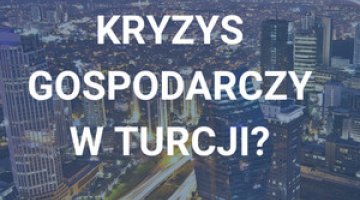Local elections in Turkey – the AKP is losing big cities
The Justice and Development Party (AKP), Turkey’s governing party, won the local election on 31 March across the country but it has lost power in eight out of the twelve biggest cities, including Ankara and Istanbul. These were the first victories for opposition candidates for the mayor’s office in these two cities in 25 years. In aggregate, the AKP garnered 44.31% of the votes, and the opposition Republican People’s Party (CHP) 30.11%. Further positions were taken by the Good Party (IP – collaborating with the CHP) with a support level of 7.35%, the Nationalist Movement Party (MHP, in alliance with the AKP) – 7.31%, and the pro-Kurdish People’s Democratic Party (HDP) won 4.24% of the vote. President Recep Tayyip Erdoğan initially recognised the election results. However, the party’s leadership in Istanbul brought an appeal to the Supreme Electoral Council (YSK), requesting a recount of the votes which were recognised as invalid. Given the fact that the CHP’s candidate won the election by a very small margin, the council’s decision will be vital for the nomination of the new mayor. The Council of Europe’s observation mission has branded the election “free but unfair” (the process of the election has been recognised as fair but the campaign and the conditions in which the election was held was viewed as unfair).
Commentary
- Both the AKP and President Recep Tayyip Erdoğan, regardless of the increasingly authoritarian tendencies for years, must seek renewal of their public mandate on a regular basis in pluralist elections. The AKP put its dominant position in Turkish politics at stake in the election and tested its mobilisation capabilities in crisis conditions, while the opposition was testing its capability of utilising public dissatisfaction. The most important factor which affected the atmosphere of the election and added to the political tension was the fact that Turkey was in economic recession in March this year for the first time since 2009. The value of the Turkish currency in 2018 was reduced by around 40%, the inflation rate is 20%, and the prices of basic food products increased by over 30% on an annual scale.
- The election result shows that the AKP is still the dominant force on the scale of the country as a whole: in fact its support level has not fallen, it is even two percentage points higher than in the parliamentary election in 2018. However, its capabilities have become seriously limited in the most important cities. In turn, for the CHP this is a major success. Firstly, it managed to gain power in the two largest cities and, secondly, its dominance within the opposition bloc has been confirmed. As compared to the parliamentary election, the support level for this party has increased by over 8 percentage points as it attracted the electorate of the other opposition parties. The IP, which wanted to become a permanent serious political force, must recognise the dominance of the CHP. In turn, the low support level for the HDP results from the fact that the party decided to only put forward its candidates in areas with a predominant Kurdish population due to the arrests of a significant section of its leadership and isolation resulting from allegations that it supports the terrorist Kurdistan Workers’ Party (PKK). It did not enter any open alliances with the other opposition parties in the remaining parts of the country. However, it did score a victory in its heartland, Diyarbakır, the largest city in south-eastern Turkey.
- The defeat in the largest cities has seriously affected the image of the governing party, AKP. President Erdoğan, who himself served as the mayor of Istanbul in 1994–1998, has announced that his party’s activity will be evaluated. The result achieved by the governing party means that the election strategy it has so far adopted – which mainly boiled down to efficiently capitalising on the party’s dominance in the state administration apparatus and the media and on its links with business circles – while keeping the public strongly polarised, no longer guarantees victory. Furthermore, a serious challenge is posed to the party not only by the economic crisis, but also by the fact that the development model it has been pursuing since it took power in 2002 (which no longer guarantees the same opportunities of social advancement and inclusiveness as in the first years of its rule) is becoming exhausted. Therefore, the AKP’s continuing rhetoric of maintaining the status quo, Islam (this more frequently than before) and keeping the public strongly polarised, is no longer credible to the electorate of large cities.
- The change in government in the large metropolises of Turkey will most likely make the political struggle more acute. Even though local government competences are mainly limited to carrying out administrative tasks, the new mayors from the CHP – as their supporters expect – will most likely adopt a more favourable approach to various kinds of grassroots forms of demonstrating public dissatisfaction, or will openly mobilise their electorate to do so. This, in turn, will most likely be met with a harsh reaction from the central government. The AKP has already defined similar moves as activity aimed against the Turkish state (for example, a court trial is pending against the organisers of the protests in Istanbul’s Gezi Park in 2013). In addition to this, the logic of the party of government provides no space for any form of advanced cohabitation (regardless of the electoral and parliamentary alliance with the MHP). Both the AKP and Erdoğan himself will, at the least, take action to prevent the mobilisation of the opposition and its ability to form tight bastions. They may use their control of the state administration and the judiciary to achieve this goal and, as a last resort, they may use various allegations of corruption, links with terrorist groupings or the Gülen Movement (which is accused of plotting the unsuccessful coup in 2016), and replace the mayors with trustees.




